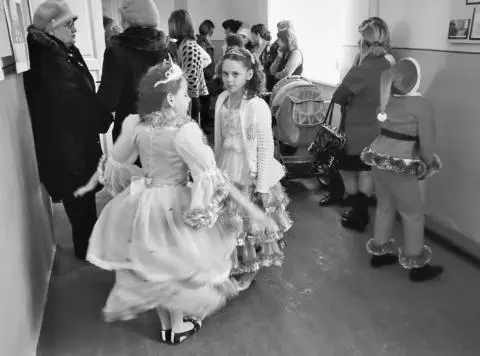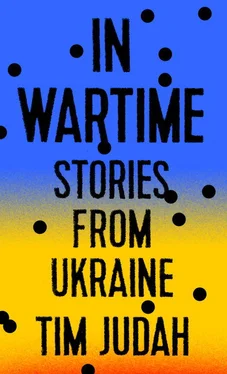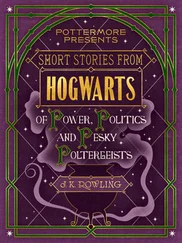That night I was sent to stay in the house of Granny Stefanida Stamat. Just opposite her house was a little shop where I stocked up on supplies and the woman behind the counter totted up the bill with an abacus. Stefanida’s house, with its compound and field at the back, is big. She has plenty of rooms, though most of them are unused because she is alone now. She has more land elsewhere, which she got when the kolkhoz was broken up. She is seventy and too old to farm it, as indeed are most of her neighbors, so like millions of others in Ukraine she has rented it to a company, which farms it together with the land of her neighbors and then, depending on what she wants, gives her a small amount for the produce it sells and a proportion of what is grown. Last year she took half of the produce to see her and her chickens through the year and 3,600 hryvnias, which in December 2014 was less than €200. Her monthly pension was 1,100 hryvnias or some €60 and much of that went on gas to keep her warm in winter. (A few months later the fall of the hryvnia slashed a third off the value of these figures.) She has two grown-up children who have moved away, thirty-two chickens, fifteen geese (“but I killed them”) and twenty-five ducks. In summer she has plenty of fruit that she grows. Like every single pensioner in Ukraine she is angry about her tiny pension, but those who live in the city don’t have the extra resources she has, which makes them far, far angrier. “I want cheese and sausage,” she said firmly. She needs cash to buy these, as she does to pay for gas. Indignantly she declared: “I was working for forty-four years!”
Some people, she told me, mentioning in particular Bulgarians in Bolgrad, the nearby town, thought that if Russia ruled here again life would be better, but Stefanida did not believe it. “I have lived for twenty-three years in Ukraine and Ukraine pays our pensions and all the produce we buy is Ukrainian.” A neighbor had commented on the small Ukrainian flag in her kitchen. “I said ‘yes— Slava Ukraini! ’” Glory to Ukraine! Stefanida is unsentimental. When I left the next day I asked her if any of her neighbors were sent to the Gulag when Soviet forces returned in 1944. “Yes,” she said, “there was a man over there who was sent away.” He was apparently richer than most in the village. He never came back and his wife never remarried. I made some remark about life being tough in Soviet times and especially while Stalin was still alive. “There was a woman who stole one and a half kilos of grain from the kolkhoz,” she said, recalling that she was sent to jail. I misunderstood her gist. I thought she was citing this as an example of an unjust system and tough times. No. The point was that then you got jailed for any tiny infraction of the law, but now people “steal millions and nothing happens to them.”
The next day I was taken to see the school. Elena, the mayor, had asked the cheerful Galina Petrova, aged fifty-one, who works with her in the town hall, to take me over. There are 244 children in it. When Galina studied here in the 1970s there were 400. She introduced me to Natalya Kircheva, who is the deputy head and aged forty-four. When she studied here in the 1980s there were 300. We looked at pictures on the walls of students in years past, on school trips and having fun, and Galina and Natalya pointed out photos of themselves as happy teenagers.
The school has a small museum of village history and folk costumes. Today was the last day of school before the Christmas holidays, and small children were swirling around in the corridors in fancy dress with their parents. The history teacher is Igor Pushkov, who came to talk to me. Originally, he said, the village was one of Nogai Tatars, who are related to Crimean Tatars and were expelled from the region when Russian imperial rule was imposed. Then the Bulgarians came to settle and only later, in the 1830s, did the Albanians arrive. When he went out of the room Natalya took me aside and said that Albanians believe they came here in 1811, and because Igor “is Bulgarian he is saying the Bulgarians arrived first.” Natalya is Albanian and would love to go to Albania for language tuition because, unlike the Bulgarians who have a trained Bulgarian teacher in school, the Albanians do not. The tour of the school over, I thought that it was time to leave, but I was mistaken. A side room had been set aside with sandwiches and chocolates. Everywhere in Ukraine ordinary people want to tell you what they think, in large part probably because they believe their own leaders don’t listen or care about them. “No one comes here. No one is interested,” said Natalya.

Fancy dress on the last day of school before the Christmas holidays. Zhovtnevoe, December 2014.
Talk quickly turned to the war. Natalya was very vocal. “It is politicians fighting it out, not a people’s war. I would support a government which would support peace on our land, even if it was not Ukrainian. We need stability.” She has two sons. One is a student and would fight if he was called up, the other is hiding because he does not want to be mobilized. “We are divided.” She described herself as “a patriot of this land, not of Ukraine, but of my bit of land, of Bessarabia. If my son died in this war and afterward Ukraine was powerful, why would I need it? It is not a price I am willing to pay. If we can’t reach a solution peacefully, then leave everything as it is.” People here, and not just here, feel isolated and forgotten. Ukraine has done little or nothing for them, they think, while some have become rich and Ukraine is a rich country with enough for everyone. Here, where locals are not even ethnic Ukrainians, there was much less willingness to pay the ultimate sacrifice for the country. Natalya’s son was at university in Odessa and like everything else in Ukraine it is permeated with corruption and she had to find the cash to help him get through. So now she thinks, “Why defend this country? We are not waiting for Russia, we are waiting for changes for the better,” and this post-Maidan government “won’t bring them. I understand that I need to think globally, but now I am thinking like a mother.” Galina chipped in: “A mother who has lost her child has lost the most precious thing and life is not worth living then.”
Galina’s own son is a seaman. In Soviet times many young men from this region, from Odessa and the coast, went to work for the Soviet merchant fleet. When the USSR collapsed, that vanished. Ships were purloined in one way or another, and a few people made a lot of money selling them. Now men work for foreign companies and the pay is good. He works all over the world but says he is ashamed of Ukraine “because people laugh at us and say that we are manipulated by people who have power.” Natalya added, “so that Russia and the U.S. can resolve their political issues on our territory.”
Galina said that people here were waiting for change but they had not seen it, and because of their experiences in the past there was no trust that government was willing or able to introduce reforms to benefit the population. In Soviet times there was a big military airbase nearby and a paratroop division. If war had broken out between NATO and the USSR, their job would have been to secure free access to the Black Sea. Troops from here went to Hungary in 1956, Czechoslovakia in 1968 and Afghanistan in the 1980s. With the base and the soldiers came a military hospital. “We had great doctors, but they have all been removed from here. So, what was that reform? It left us fewer doctors and beds and no specialists.” And free health care, which is what Ukrainians are supposed to benefit from, is mostly free on paper only.
Читать дальше













